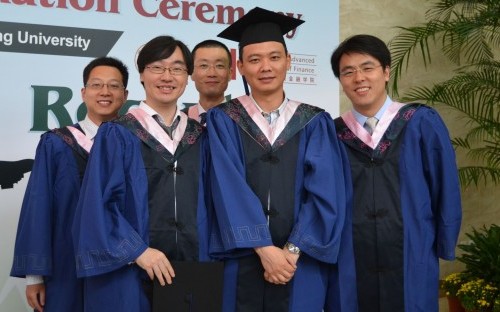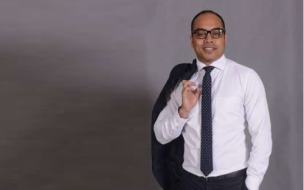Gao, 30, is originally from a small town in the north of Jiangsu Province, about 400 kilometres from Shanghai. He studied Japanese at Shanghai Jiaotong University for his undergraduate degree, “that was the farthest away from home I had ever been at that time.”

After graduating Gao moved to Tokyo to join a Japanese company as an Enterprise Resource Planning (ERP) consultant, he remained in Tokyo enjoying his “overseas life” for three years. Gao, as a Japanese major, did not find language a problem but the communication skills were the biggest challenge “as I had to work surrounded with peers and customers from totally different cultures.”
The burgeoning Chinese economy saw Gao return to Shanghai in 2007, he saw the potential for prosperity and was attracted by promising career opportunities. Gao started work for the management consultancy firm, ABeam Consulting where he continues to work.
Whilst working at a consultant Gao realised the necessity of taking an MBA program for self-improvement. “I took the MBA course for two main reasons: firstly, to implement within myself a systematic framework with which to consider economic and business problems. I wanted to learn a basic and solid understanding of business and gain the tools to cope with the increasing complicated world of business.”
Secondly, Gao wanted to expand his network which he explained “is a very important success factor for career development in China. I think most MBA students share this reason not just SAIF students, I think it is a universal common aim.”
Gao looked at part-time MBA courses, knowing he wanted to stay in his consultancy job. Both business schools he considered are operated by Shanghai Jiatong University; one is named ACEM and the other is SAIF.
Both ACEM and SAIF are well-ranked in the Chinese business school rankings. “ACEM focuses on general management, providing course such as strategy, marketing, leadership and the like in order to prepare its students for management roles in the future.”
But SAIF was more of a draw for Gao. “I hold an optimistic view of China’s financial industry development potential. As a nation the economy is mainly driven by manufacturing and the development of finance is still in its infant stage. I can see great opportunities in finance, not only from the business perspective but also for personal career development.”
Before considering an MBA Gao had taken responsibility in the build-up of an M&A service line at his firm, so realised an MBA program specialising in finance would be a better choice. “SAIF’s well-prepared courses in general management as well as its courses in Finance also made it unquestionably perfect for me.” The faculty at SAIF were also well-renowned, this sealed the deal.
Most of the other part-time MBA students were drawn from the finance industry, “it was amazing when I found there are too many great guys with great creativity and a good sense of humour.”
And it was important to have a bond with the other cohorts as the part-time MBA turned out to be a tough schedule, “I had to pull many all-nighters and there was a great deal of pressure, both mentally and physically, for us part-time students who had to do our day jobs at the same time.”
Gao used the SAIF careers service’s professional mentor program and through them “got an acquaintance with a great banker who is now responsible for an international bank’s investment business. His long-term experience in finance gave me brilliant insight when considering my career path.” With his mentors help Gao Jing has decided that he sees his future as a M&A expert.
RECAPTHA :
a6
6d
e1
41







